Posted on 12/20/2024
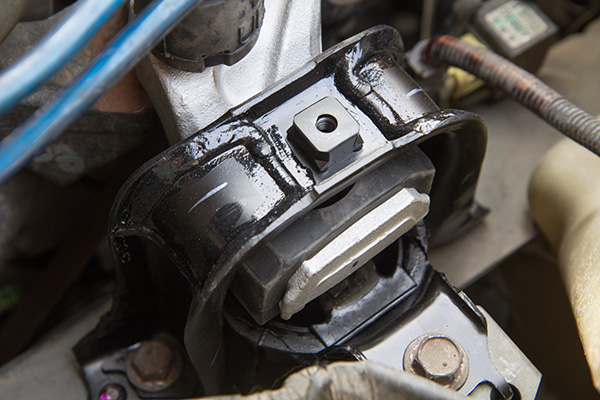
Ever noticed unusual vibrations when driving your car? It’s one thing to experience a slight shake from uneven road surfaces, but persistent vibrations could point to underlying issues. Among the less common culprits are faulty transmission and engine mounts, two components that keep your vehicle stable and secure. If you’re driving around Sarasota, FL, and dealing with this problem, it’s time to get to the root of it before it leads to bigger headaches. What Do Engine and Transmission Mounts Actually Do Your car’s engine and transmission mounts serve an essential purpose. These mounts secure the engine and transmission to the car’s frame, keeping them in place during acceleration, braking, and turning. They also absorb vibrations, ensuring a quieter and more comfortable ride. Without these mounts functioning properly, you’d feel every bump and shake directly from the drivetrain. Engine mounts are typically made of metal and rubbe ... read more
Posted on 11/29/2024
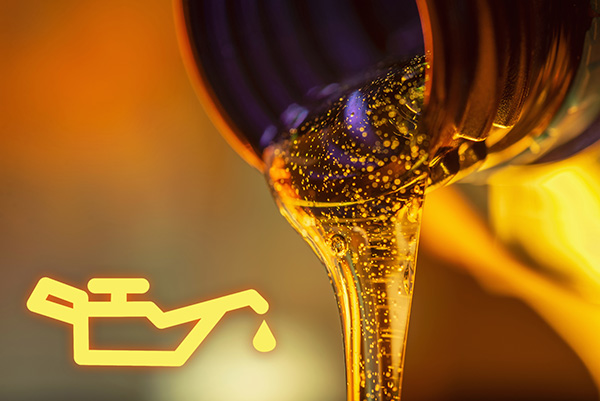
If you’ve ever stood at the service counter debating which oil to choose for your car, you’ve likely noticed that synthetic oil comes with a higher price tag. You might wonder, “Is it worth the cost?” or “Why is synthetic oil more expensive than conventional oil?” While it may feel like a splurge, the reasons behind synthetic oil’s price reveal its value. The Science Behind Synthetic Oil Unlike conventional oil, which is refined from crude oil, synthetic oil is engineered from chemically modified base oils. This process isn’t just about extraction; it’s about creating a highly stable, uniform product. Engineers meticulously design synthetic oil molecules to perform better under stress, resist breaking down at high temperatures, and provide superior lubrication. This precision comes at a cost, as the manufacturing process is far more complex than simply refining crude oil. In short, synthetic oil isn’t just ... read more
Posted on 10/31/2024
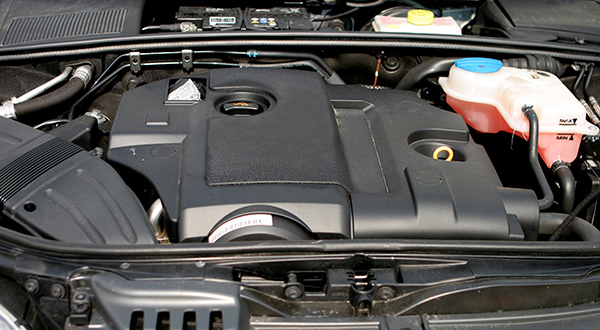
You’re sitting at a red light, your car’s engine is running, and suddenly, you feel an unexpected shake or vibration. What could be causing this? Car vibrations at idle can indicate an underlying issue that needs attention. Identifying the reason behind these vibrations is key to keeping your vehicle in good health and avoiding potentially costly breakdowns. Let’s explore the common causes of car vibrations when idle and what you can do to fix them. Engine Misfire One of the primary reasons your car may vibrate when idling is an engine misfire. In simple terms, a misfire occurs when one or more of the engine’s cylinders fail to ignite properly. This disrupts the engine’s rhythm, leading to noticeable vibrations. Misfires can happen for several reasons: Faulty spark plugs: Worn or dirty spark plugs can fail to ignite the air-fuel mixture in your engine, causing a misfire. Clogged fuel injectors: When f ... read more
Posted on 9/27/2024

Hydroplaning is one of those driving experiences that can send a chill down your spine. You’re driving through the rain, everything seems fine, and then suddenly, your car feels like it’s gliding uncontrollably across the road. It’s a dangerous situation that many drivers face, and one of the primary factors that contribute to hydroplaning is tire tread. But how exactly does the tread on your tires affect this slippery situation? What Is Hydroplaning? Hydroplaning occurs when a layer of water builds up between your car’s tires and the road, causing a loss of traction. When this happens, the tires are no longer gripping the road properly, and your vehicle can lose control. This is most likely to happen during heavy rain or on wet surfaces when the tires are unable to channel water away fast enough. Speed also plays a big role—hydroplaning is more likely to occur at higher speeds when water pressure between the road and tires builds up qui ... read more
Posted on 8/30/2024
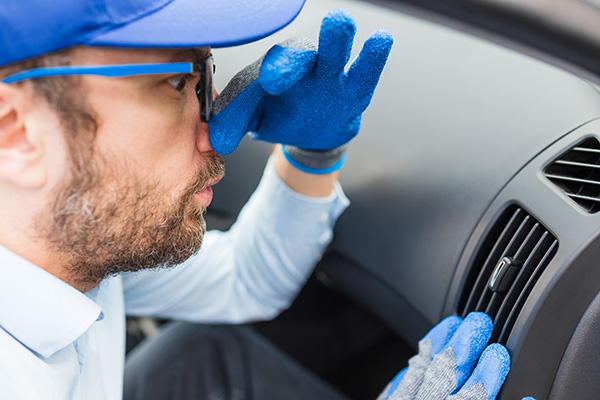
Have you ever stepped into your car and been hit with an unexpected, unpleasant odor? Your vehicle’s scent can tell you much more than whether it needs a good cleaning. In fact, certain smells can be the first signs of serious issues under the hood. Ignoring them could lead to bigger problems down the road. We will explain five strange odors you might encounter in your vehicle, what they mean, and why you shouldn’t ignore them. 1. Burning Rubber One of the most alarming smells you can experience in your car is burning rubber. While it’s easy to assume it’s just your tires after a long drive, the truth can be far more concerning. This smell could indicate an issue with your engine’s belts or hoses. If a belt is slipping or a hose is loose, it can come into contact with hot engine parts, leading to that distinct burnt rubber smell. What should you do? If you catch a whiff of burning rubber, it’s crucial to stop driving and inspect u ... read more
Posted on 7/26/2024
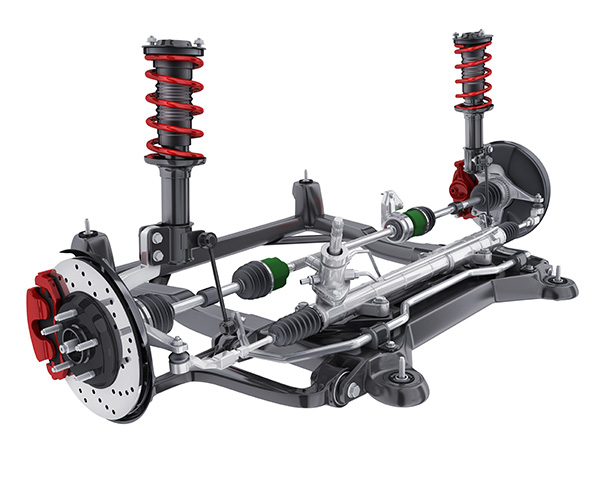
Have you ever felt like your car is bouncing more than usual? Or maybe you've noticed that it's pulling to one side when you drive. These might seem minor annoyances, but they could signal that your suspension system is in trouble. Your car's suspension is crucial for a smooth and safe ride, absorbing shocks from the road and helping you maintain control of your vehicle. Ignoring suspension issues can lead to more significant problems and even dangerous driving conditions. So, how do you know when your suspension needs repair? Here are seven key signs to watch out for. 1. Excessive Bouncing and Rattling If you notice that your car is bouncing excessively over bumps or uneven road surfaces, it's a clear sign that your suspension system is not functioning correctly. The suspension's primary role is to absorb shocks and keep your ride comfortable ... read more
Posted on 6/27/2024
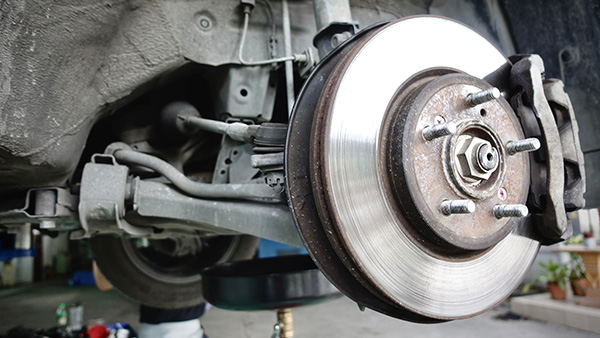
Ever found yourself in a sudden stop situation and felt that reassuring pulsing under your brake pedal? That's your car's ABS system kicking into action. Short for Anti-lock Braking System, ABS is a crucial safety feature that prevents your wheels from locking up during intense braking, allowing you to maintain control and steer your vehicle. But how does this lifesaving technology work? The Basics of ABS The Anti-lock Braking System (ABS) is designed to prevent your vehicle's wheels from locking up during braking, especially in slippery conditions. When wheels lock up, they skid on the surface, drastically reducing the car's ability to steer and stop effectively. ABS ensures that the wheels maintain traction with the road surface, giving you more control and reducing stopping distances. How ABS Works The ABS system is made up of four main components: speed sensors, a hydraulic pump, valves, and an electronic control unit (ECU). Eac ... read more
Posted on 5/29/2024
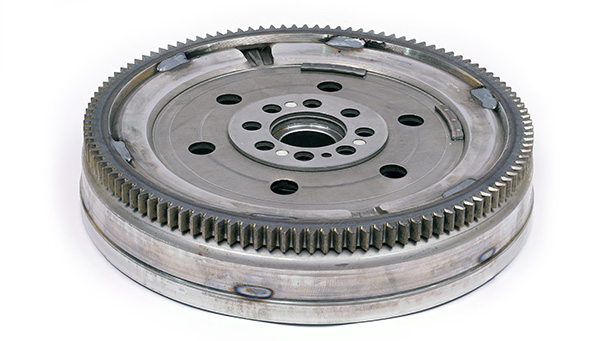
The flywheel might not be a term you hear every day, but it is an essential part of your vehicle's engine system. Positioned between the engine and the transmission, the flywheel acts as a mediator that helps maintain engine balance and smooth operation. Its significance goes beyond connecting components; it plays a vital role in your car's overall efficiency and functionality. How a Flywheel Works At its core, a flywheel is a mechanical device specifically designed to store rotational energy. It works on the principle of inertia, meaning it resists changes in rotational speed. Here's how it functions in a car: Storing Energy: During the engine's power stroke, the flywheel stores some of this energy when the piston moves down and the engine generates power. Releasing Energy: The stored energy is then released to smooth out the power delivery during the other strokes of the engine cycle (intake, compression, and exhaust), ensuring consistent performa ... read more
Posted on 4/28/2024
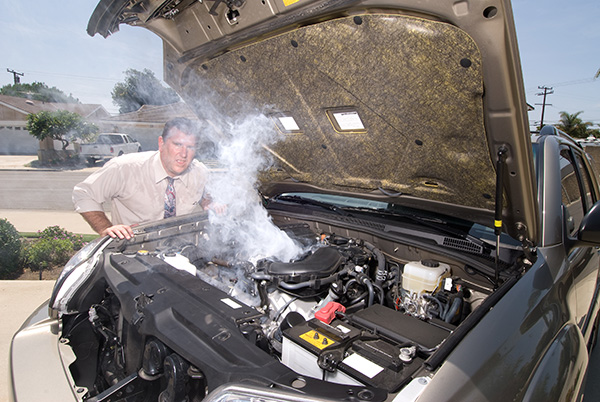
Your car is a significant investment, and you want to ensure it runs smoothly for years to come. However, certain habits many of us have may unknowingly harm our vehicles. From neglecting regular maintenance to driving habits that stress our cars unnecessarily, these behaviors can lead to costly repairs and premature wear. 1. Neglecting Regular MaintenanceRegular maintenance is vital to keeping your car in top condition, yet many drivers overlook this crucial aspect. Skipping oil changes, ignoring check engine lights, and neglecting tire rotations are common habits that can have serious consequences. Your car's performance may suffer without proper maintenance, leading to decreased fuel efficiency, increased wear and tear, and potential breakdowns. 2. Ignoring Warning Signs Your car often communicates with you through various warnin ... read more
Posted on 3/28/2024
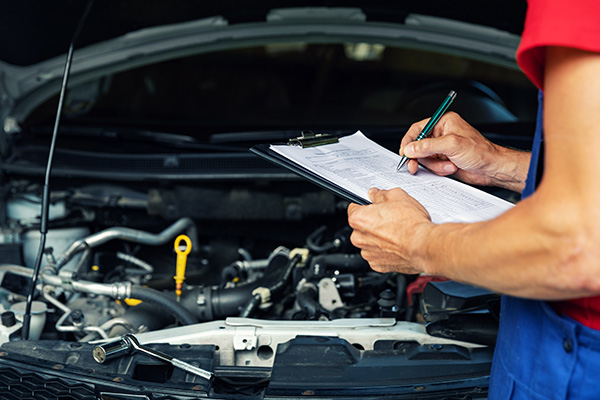
When it comes to owning a car in Florida, there's one essential task every driver must be familiar with: car inspections. Whether you're a seasoned resident or a newcomer to the Sunshine State, understanding Florida's car inspection requirements is crucial. From what's involved in the inspection process to where you can get it done, let's explore everything you need to know about Florida car inspections.What is a Florida Car Inspection? In Florida, a car inspection is a mandatory procedure designed to ensure that vehicles meet the state's safety and emissions standards. It's a way for authorities to verify that cars on the road are safe to drive and environmentally friendly. Types of Florida Car Inspections Safety inspections focus on checking various components of your vehicle to ensure they're in proper ... read more